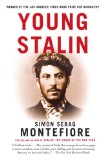Summary | Excerpt | Reviews | Beyond the book | Read-Alikes | Genres & Themes | Author Bio

In 1946, two brothers and a Jewish girl fall into alignment in Moscow. The fraternal conflict then continues in Norlag, a slave-labor camp above the Arctic Circle, where a tryst in the coveted House of Meetings will haunt all three lovers long after the brothers are released.
An extraordinary novel that ratifies Martin Amis’s standing as “a force unto himself,” as The Washington Post has attested: “There is, quite simply, no one else like him.”
House of Meetings is a love story, gothic in timbre and triangular in shape. In 1946, two brothers and a Jewish girl fall into alignment in pogrom-poised Moscow. The fraternal conflict then marinates in Norlag, a slave-labor camp above the Arctic Circle, where a tryst in the coveted House of Meetings will haunt all three lovers long after the brothers are released. And for the narrator, the sole survivor, the reverberations continue into the new century.
Harrowing, endlessly surprising, epic in breadth yet intensely intimate, House of Meetings reveals once again that “Amis is a stone-solid genius . . . a dazzling star of wit and insight” (The Wall Street Journal).
Despite the book jacket's promise of a love story, it becomes clear early on that this is not going to be a love story in any traditional sense; even the narrator qualifies his statement by saying that it's a story of Russian love, indicating that we shouldn't expect anything remotely soppy and loving within these pages. In essence The House of Meetings is an extension, in novel form, of Amis's 2002 nonfiction work Koba the Dread: Laughter and the Twenty Million, a reference to Stalin and the estimated 20 million who died under the Bolshevik regime between 1917 and 1933...continued
Full Review
(1350 words)
This review is available to non-members for a limited time. For full access,
become a member today.
(Reviewed by BookBrowse Review Team).
The Soviet system of forced labor camps known as the Gulag spanned nearly four decades of Soviet history and affected millions of individuals. GULAG is an acronym of Glavnoe Upravlenie Lagereian which, depending on the source, translates as "The Main Directorate for Corrective Labor Camps" or "Main Camp Administration". The earliest camps were established in 1919, by 1939 about 1.6 million were incarcerated. Over time, the word "Gulag" has come to signify not only the administration of the concentration camps but also the system of Soviet slave labor itself, in all its forms including labor camps, punishment camps, criminal and political camps, women's camps, children's camps and transit camps.
Prisoners included murderers, thieves and ...
This "beyond the book" feature is available to non-members for a limited time. Join today for full access.

If you liked House of Meetings, try these:

by Owen Matthews
Published 2009
An indelible portrait of Russia over seven decades and an unforgettable memoir about how we struggle to define ourselves in opposition to our ancestry only to find ourselves aligning with it.

by Simon Sebag Montefiore
Published 2008
A revelatory account that finally unveils the shadowy journey from obscurity to power of the Georgian cobbler’s son who became the Red Tsar—the man who, along with Hitler, remains the modern personification of evil.
No pleasure is worth giving up for the sake of two more years in a geriatric home.
Click Here to find out who said this, as well as discovering other famous literary quotes!